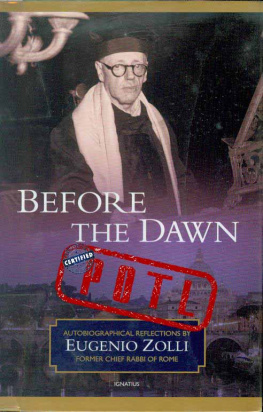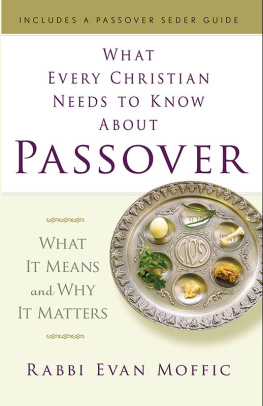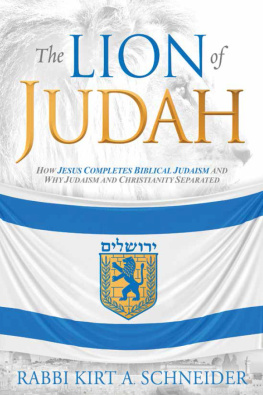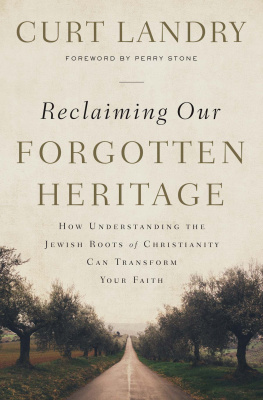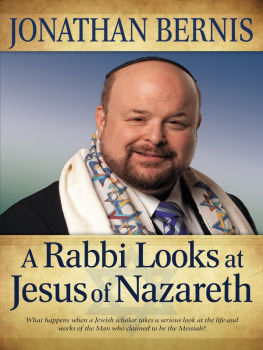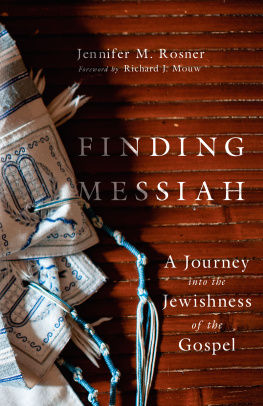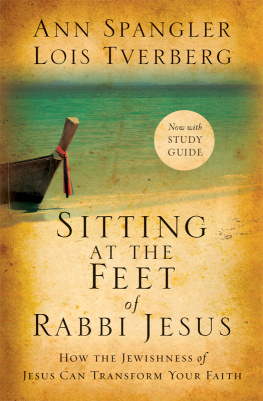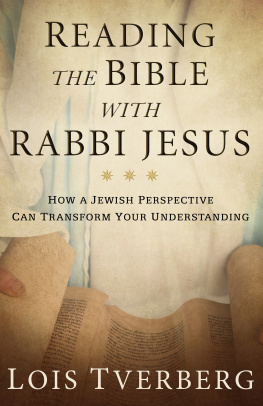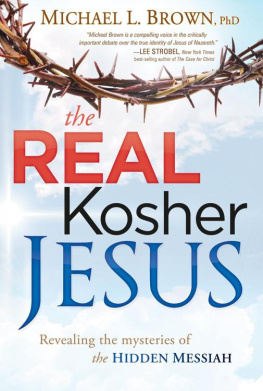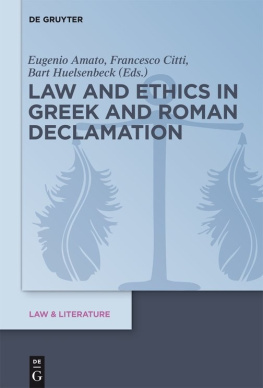Foreword
By Roy Schoeman
Thewaters of Cape Horn at the tip of South America are among the most turbulentand treacherous in the world, for that is where two great bodies of water, theAtlantic and Pacific Oceans, meet in collision. This image provides an apt oneto characterize the life of Rabbi Israel (later Eugenio) Zolli, for the storyof his life unfolded in a time and place where not only one, but three opposingpairs of powerful conflicting spiritual forces met and collided.
He lived in a placeRome under the Nazi occupation where one ofthe most anti-Christian movements of all time, Hitlers Nazism, came face toface with the Vicar of Christ on earth, at the center of the Churchs presenceon earth. He lived in a time when the negative view of Judaism that dominatedthe Christian world for almost 2000 years the so-called teaching of contempt gave way to the current, farmore positive view, of Jews as elder brothers in the faith (in the words ofboth Pope John Paul II and Pope Benedict XVI). And in the Rabbis very own soul(not irrelevantly the soul of the Chief Rabbi of Rome) Judaism itself met, andwas conquered by, the love flowing from the heart of the Jewish Messiah Jesus,leading him into the Catholic Church. The story of his life is hence also thestory of these three great cosmic battles, and so provides profound spiritualinsight into the unfolding of salvation history.
In the battle with Nazism, Zolli was, with the help of Pope PiusXII, instrumental in saving the bulk of Romes Jewish community fromdeportation and death. In the battle of polemics between the Jewish andChristian communities, Zollis writings even before his conversion presented anoverwhelmingly positive view of Christ, to the point that an Archbishop said,about his 1938 book on Jesus The Nazarene, that as a bishop, I could sign my name to this book. And as auniversity professor teaching the Jewish scriptures, Zolli gave Catholics,including many clerics, a positive view of Judaism both before his conversion,at the University of Padua (1927-1938), and after it, at the PontificalBiblical Institute.
Finally, and most unspeakably beautifully, Judaism andChristianity met in his very soul, becoming one. The vision that led to hisconversion provides a perfect visual image of this. He had the vision as he wascelebrating Yom Kippur liturgy, the most solemn in all of Judaism. As theclosing prayers were being said, he saw Jesus standing in a bright meadow.Zollis soul was filled with the greatest interior peace, and he heard Jesussay to him, You are here for the last time. And so it wasa few weeks laterZolli was baptized and received into the Catholic Church, taking Pope PiusXIIs baptismal name, Eugenio, for his own to honor the Pope for all he haddone to save the Jews.
Thus the union between Judaism and the Catholic Church waseffected in the Rabbis soul, while an understanding of the intrinsic unitybetween the two, as the pre- and post- Messianic forms of one and the samereligion, permeated his understanding. For when asked why he had given up thesynagogue for the church, Zolli replied, I have not given it up. Christianityis the integration, completion or crown of the Synagogue. For the Synagogue wasa promise, and Christianity is the fulfillment of that promise. The Synagoguepointed to Christianity: Christianity presupposes the Synagogue. So you see,one cannot exist without the other. What I converted to was the livingChristianity.
Sothis account of the life of Rabbi Zolli is about much more than just the man.It is about the great battle between the forces of darkness and the CatholicChurch that dominated the middle of the twentieth century. It is about theheroism and philo-semitism of that hero of the Jews, Pope Pius XII, despiterecent false calumnies to the contrary. It is about the evolution of theChurchs attitudes toward Judaism, and of Judaisms attitudes toward theChurch. And ultimately it is about the greatest love story of all, the onebetween the great lover of every human soul, the Jewish Messiah Jesus, and howhis love, expressed through the grace of conversion, brings about the ultimateunity between Judaism and the Catholic Church.
This termwas introduced by Jewish historian Jules Isaac in his 1947 Jesusand Israel to refer to the teaching that theJewish people are collectively guilty of deicide, for which they arecontinually being punished. The very different view represented in Vatican IIs Nostra Aetate is thought to have been influenced by Isaacs i960 private audience with PopeJohn XXIII.
Forewordto the First Edition
Withthis book, Beforethe Dawn, Professor Eugenio Zolli, former Chief Rabbi in Rome, presents us with anaccount of the events of his life, and those especially leading up to hisbaptism. Human factors alone can never sufficiently explain the entire processof a conversion. Another agent, grace, a supernatural gift conferred by Godthrough the merits of Jesus, enters to enlighten the mind, to strengthen thewill, and to move one to adore Christ, the God-Man, Founder of the Church,Teacher and Savior.
At our first meeting in Washington, August 20, 1953, ProfessorZolli and I engaged in a long conversation. He had come to America that summerto give Biblical Lectures at the University of Notre Dame in Indiana. After abrief exchange of greetings, we recalled memories of persons and events inRome. Then I do not remember how the conversation turned to Saint John, thedisciple whom Jesus loved, and became fixed there. The remarks were in thisvein: John was truly the disciple of love, and in Jesus he saw immediately theSon of God as well as the Divine Master. He never abandoned Him; his Gospel andLetters reveal complete and intimate dedication to the Lord. In his Gospel, hetreats especially and at length the public life of Jesus in Judea, thuscompleting the accounts of the other three evangelists. His principal interestis the Divinity of Christ, but he also draws attention to small details thathave personal attraction for him and thereby become the same for the reader, asfor example, the reference to the time of his first talk with Jesus beingabout the tenth hour the hour of his vocationor the reference to the robeof Jesus as a seamless garment. Finally we spoke of the frequent expressionsto which John attaches the same meaning, all concentrated on charity, theessence of Christian life expressions such as to abide in love, to abide inthe light, to do the truth, to know God. These phrases exemplify thesublime truth that the knowledge of God may come more from spiritual love thanfrom argumentation. At this point, Dr. Zolli took occasion to avow that in hiscase he had come to Christianity by way of this charity, and not by way oferudition; certainly he would admit that his culture had been beneficial tohim, yet no human principle would have been adequate for accomplishing so much.
It was Hebraic Truth that came to absorb his mind, his life, and one may say, his all.He saw it and lived it in privileged surroundings, experiencing contact witheverything it has to offer as most noble and attractive. Trained in biblicalliterature along with his brothers, first under the gentle guidance of hismotherherself of rabbinical stockthen educated in the majesty of the Torahand the magnificence of the Psalms learned by heart as a child, he foundhimself, while still comparatively a young man, in the position of AssistantRabbi. Gradually becoming immersed in biblical and talmudic thought as well asoriental culture, and achieving complete mastery of the language whereof everyIsraelite is justly proud, the language of the patriarchs and the prophets ofangels and of men, Eugenio Zolli matriculated at several institutes anduniversities of higher learning, thus attaining the scholarship that eventuallyjustified his appointment as Director of the Israelite Italian RabbinicalCollege. All these in succession formed the links of memories, friendships, andtraditions that naturally combined to hold him fast to the Synagogue andHebraism. But grace, too, was secretly working.

